10 delicious retro Hungarian candies you need to try

Hungarian cuisine is relatively well known around the world, with certain Hungarian dishes recognized almost everywhere. But now we present Hungarian candies, which enchant the taste buds with their flavors.
Every now and then, you just want to stay at home curled up in a warm blanket while watching the telly and snacking on some delicious sugary delights. Here is a list of some of the favourite candies of Hungarians. You should try them all!
Hungarian candies
Dunakavics – Danube rocks
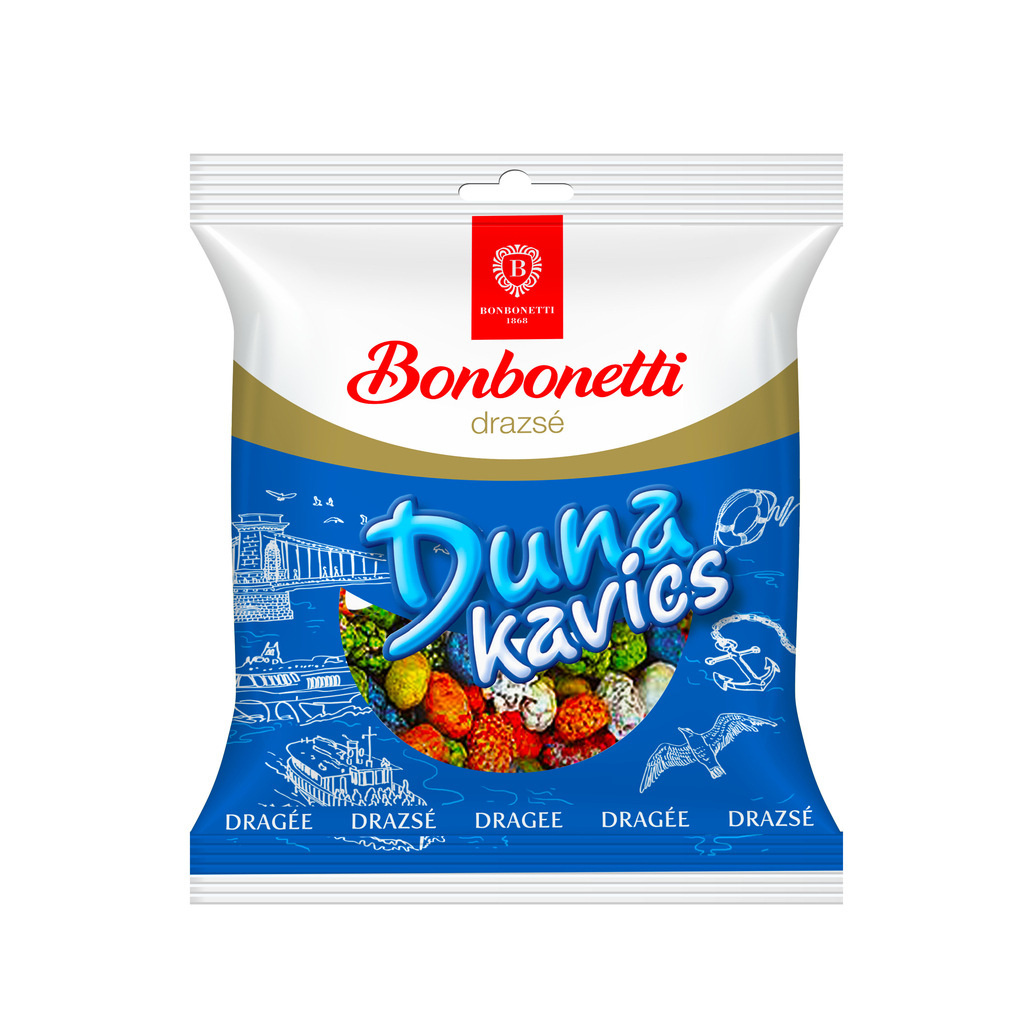
Dunakavics are roasted peanuts coated in coloured sugar. They are very similar to peanut M&Ms; however, these are authentic Hungarian products.
The production of the Dunakavics began in 1964, and the dragées still have the same recipe ever since. You can find this delicacy in the stores in blue packaging. The name comes from the fact that, due to the uneven sugar coating, these dragées look like the pebbles at the shore of Danube.
It was the Duna Csokoládégyár (Danube Chocolate Factory) that first started manufacturing them. In the ’90s, the German Stollwerck AG acquired the plant of Budapest Csokoládégyár and the new plant had been moved to Vágóhíd street where it still stands today.
Francia drazsé – French dragée
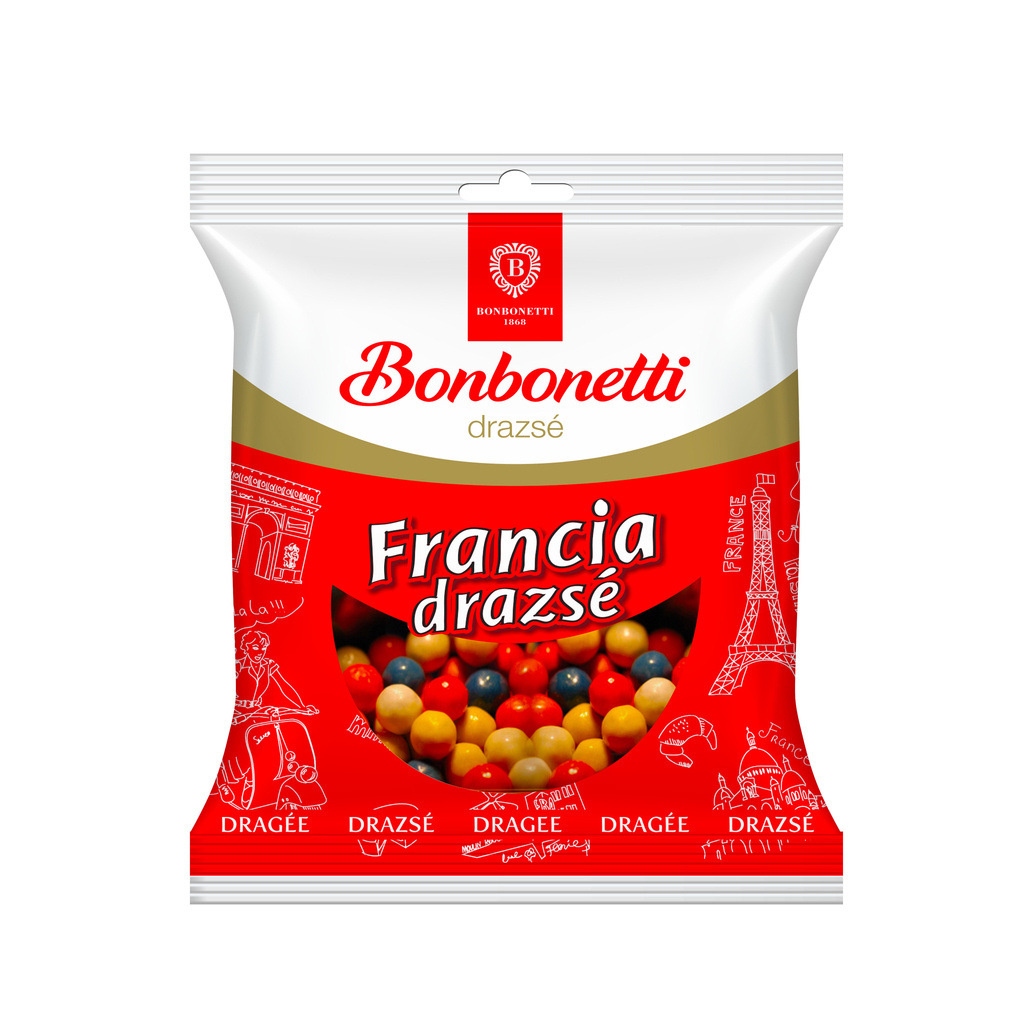
These cocoa dragées are approximately the Hungarian equivalent of chocolate M&Ms; tiny cocoa balls coated with coloured sugar.
The production of this sweet snack started out at the same time as of Dunakavics; the Danube Chocolate Factory started manufacturing them in 1964. The children soon became very fond of this chocolate to the dismay of parents and doctors who often had to remove them from the children’s nose who stuck them in there for fun.
The current manufacturer, who also owns Dunakavics’s Bonbonetti Choco Kft, kept the original recipe and sells the dragées in red packages. You will easily find them in almost every store. They even come in some new flavours.
Pilóta keksz – Pilot cookies
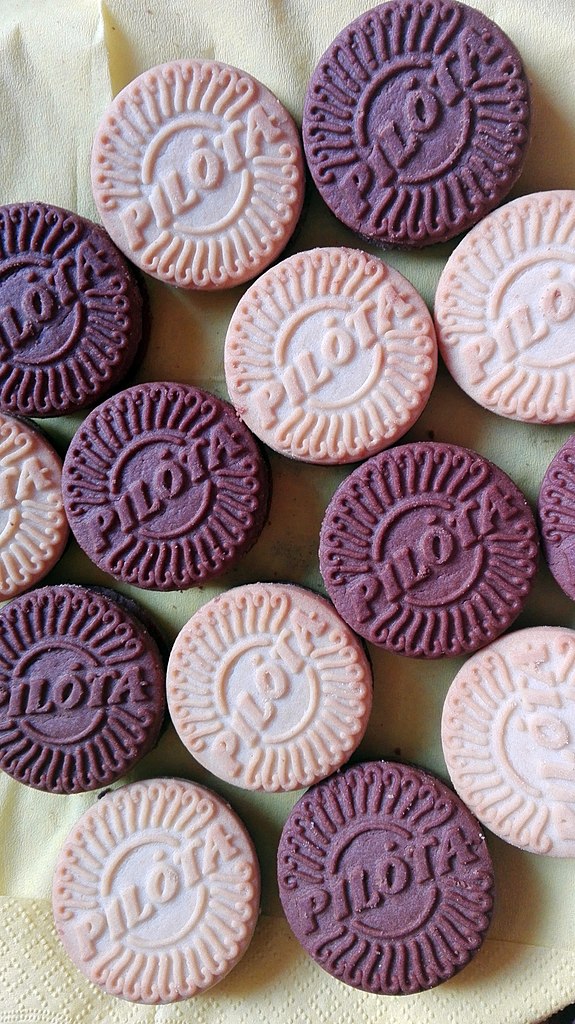
Photo: Wikimedia Commons / Gg. Any
There are actually three main types of this snack. One that is called Pilóta kakaós is somewhat similar to the popular Oreo but its filling is chocolate flavoured and one of the sides is vanilla while the other is chocolate flavoured biscuit. The other type, called Pilóta vaníliás karika, is a vanilla flavoured ring-shaped biscuit and its bottom is dipped in chocolate. The third type is called Pilóta piskótatallér which is a sponge cake thaler with a small layer of jam on it and the side with the jam is dipped in chocolate to keep the jam side firm.
These cookies have been beloved treats for Hungarians since 1960. The name idea might have come from the fact that the survival kit of the pilots contained biscuits during World War II. Following a couple of changes in ownership, the cookies are currently manufactured by the Mondelez International (Mondelez Hungária Kft.) company.
Sport szelet – Sport bar
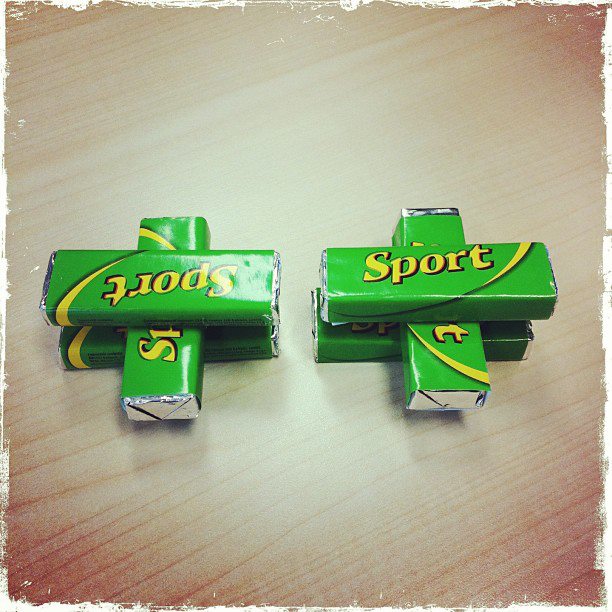
It is an iconic Hungarian rum-flavoured chocolate bar coated in dark chocolate. It has been the all-time favourite snack for Hungarians for long decades. Since the beginnings, the manufactureres have changed the packaging a couple of times. Today, this delicious treat is available in different sizes and in several unique flavours.
Sport szelet was born in 1953, and the original packaging depicted a discus thrower. The recipe is still the same, only the size has grown. In 2013, its manufacturer Mondelez Hungária Kft. told the press that they produce 46 million bars a year and Hungarians consume 1,800 tonnes of it.
Macskanyelv – Cat’s tongue
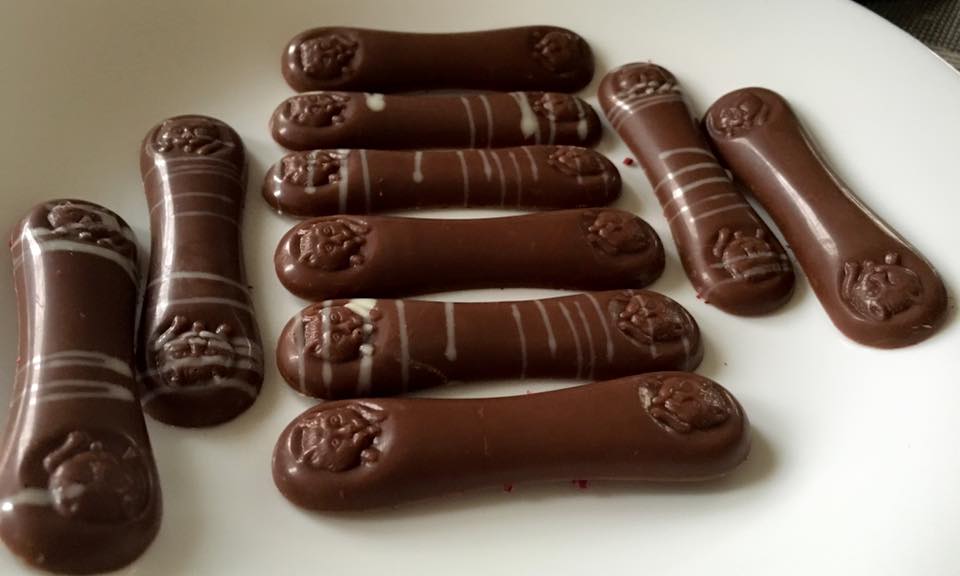
Photo: facebook.com/ChristisChoco
These are 5-8 centimetres long, elongated chocolate bars with wide and rounded ends that somewhat resemble a cat’s tongue. Flavours include white, milk, and dark chocolate. You can eat it right away, or you can use it to decorate sweet dishes.
It was presumably invented by Emil Gerbeaud at the end of the 19th century, although some believe that the idea came from the Austrian Küfferle company. What is certain is that, in Hungary, it was Gerbeaud who served it first for his customers in his confectionary at Vörösmarty square. It can also be found in many other countries.
How to make your favourite Hungarian snacks at home – Videos
Hungary’s best szaloncukor revealed
Medvecukor / Bocskorszíj – Bear candy / Shoelace
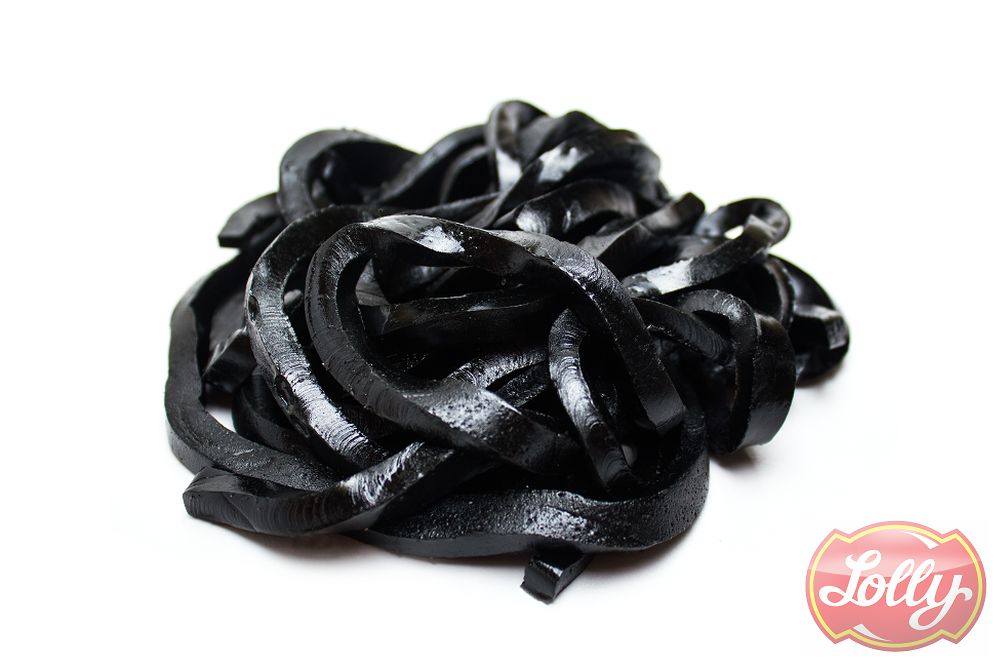
Source: lolly.hu/
Medvecukor is a sweet and black candy made of liquorice extract. Haribo has a similar product under the name Rotella but the traditional Hungarian one is a square-shaped long strand of squishy black candy. Its other name comes from the fact that it resembles the boot laces.
The original version of this snack can be found in most shops around Hungary while a couple of larger companies also sell similar products.
Negro
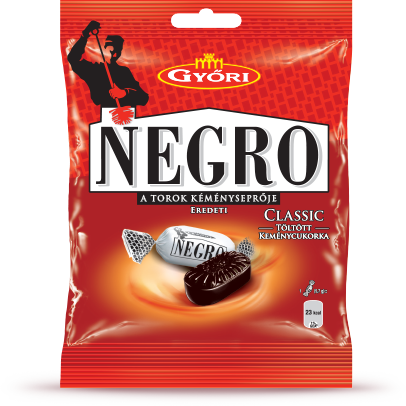
Somewhat similar to our previous entry, Negró is a candy that uses liquorice extract in the original black version of this snack. Its name has no racist connotation as it was named after its inventor Pietro Negro.
At the beginning of the ‘20s, the candy was made of the by-products of other sweets, but its exact ingredients remain an industrial secret. The candy is also often called ‘the chimney sweep of the throat’. There are also other flavours such as the yellow honey-menthol, the red raspberry-menthol, or the green eucalyptus-menthol.
Konyakmeggy – Cognac sour cherry
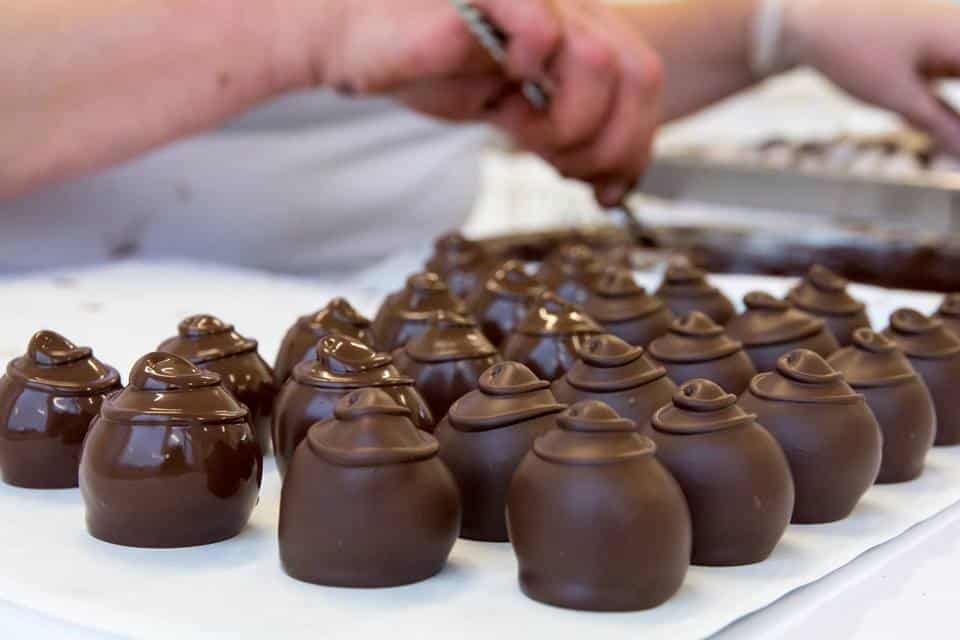
This chocolatey alcoholic perfection is also linked to Emil Gerbaud. He was the first to perfect the technique of covering a whole alcohol-preserved sour cherry in chocolate.
Since the late 19th century, this delicacy has been coveted by many. During the early 20th century, the company shipped this dessert to the US, South Africa, and South America, Magyarkonyhaonline reports. It is a perfect blend of flavours as the sweet alcoholic cherry slowly melts together with the chocolate in your mouth. Need we say more?
Balaton szelet – Balaton bar
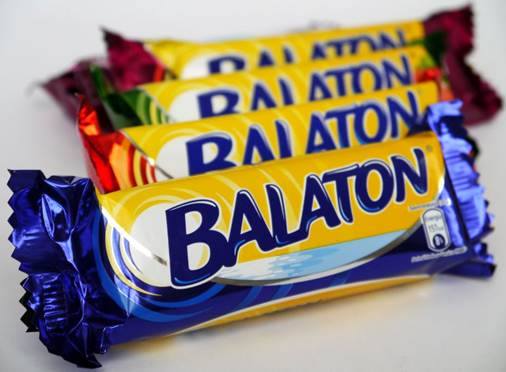
Source: facebook.com/BALATONszelet/
According to the manufacturer, which is currently Nestlé, it has been the favourite wafer bar of Hungarians for the past 70 years. It is probably due to its simplicity.
Balaton is made of stacked wafer bars with cocoa cream filling which are traditionally coated in milk or dark chocolate. In the past couple of years, several new flavours have been launched. Some of these flavours resemble the Snickers bar while others just vary in the flavours of the filling between the wafers. If you want to try it, go for the classic flavour!
Ízvilág termékcsalád – ‘World of flavours’ products
It does not include only one single bar. These products have been around for quite some time. Usually, if you find one on the shelves you will instanly discover the other flavours next to it as well. Many small stores have these chocolate bars but you can also look for them in bigger supermarkets.
These chocolate bars are the following:
Lottó – Lottery
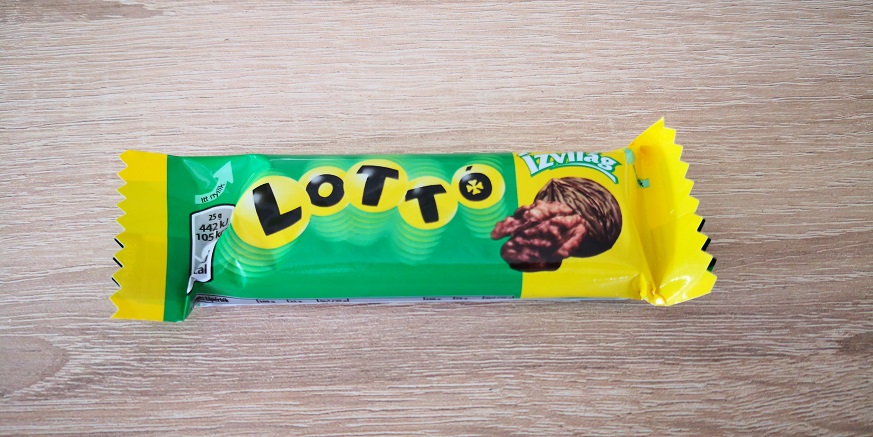
It is a rum-flavoured walnut bar coated in dark chocolate.
Kapucíner – Black coffee with milk
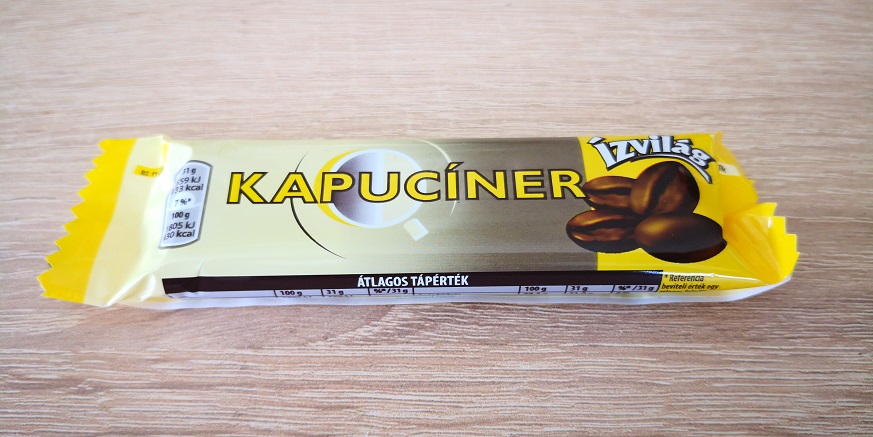
As the name suggests, it is a coffee and cream bar coated in dark chocolate.
Bohóc – Clown
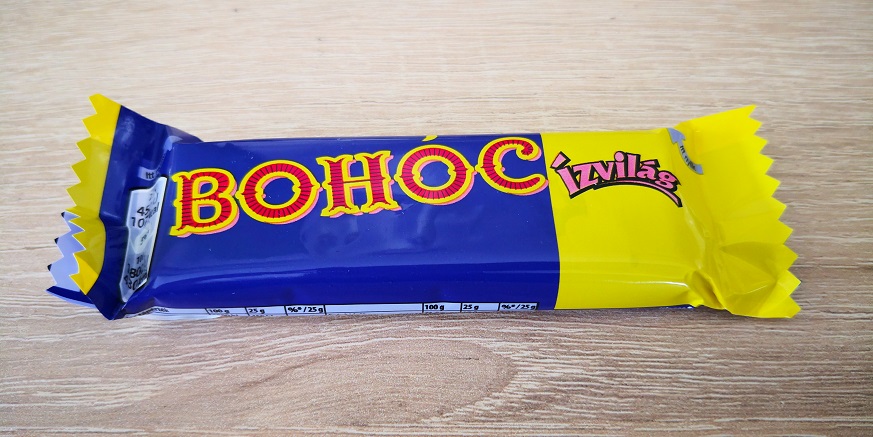
It is a rum and orange-flavoured cocoa bar coated in dark chocolate.
Szamba – Samba
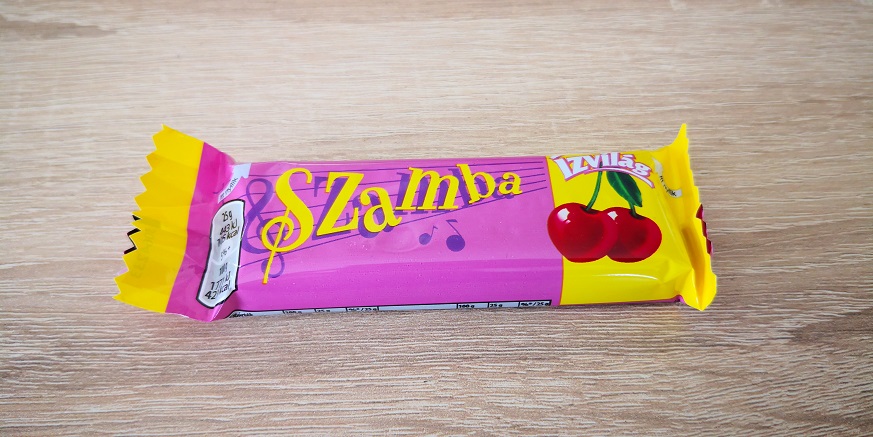
A rum and marzipan-cherry flavoured cocoa bar coated in dark chocolate.
Eperjó – “Strawberry good”
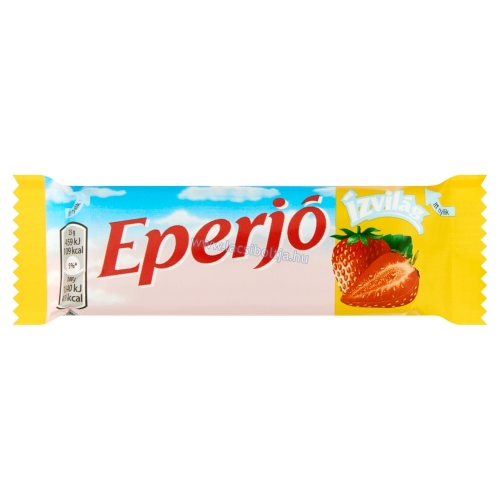
Yogurt and strawberry-flavoured bar coated in milk chocolate.
Autós – Car
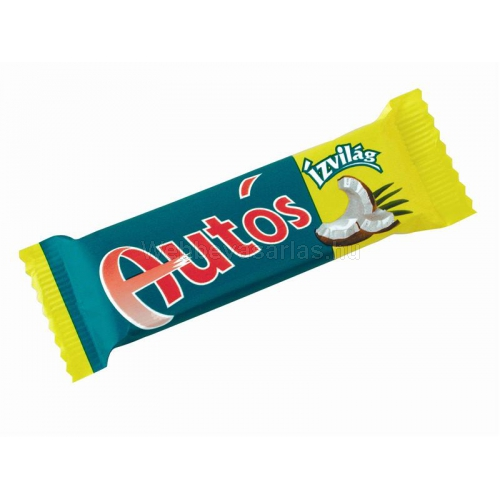
Coconut bar coated in milk chocolate.
read also:
Made in Hungary! – Hungarian brands that conquered the world
A Hungarian chocolate factory making sweets for over 150 years
Source: Daily News Hungary





